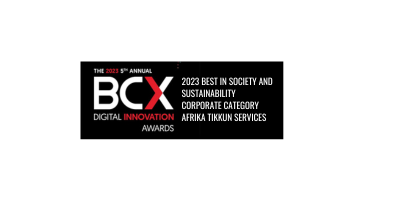This International Day of Education comes at a time when South Africa faces access, governance, inadequate curricula, uneven teacher deployment, and inequitable resources stumbling blocks. Afrika Tikkun Services (ATS) calls for a transformation of the education system, one where racial, gender, and anti-poor biases will be overcome. The theme to mark the day is “Changing Course, Transforming Education,” strengthening and welcoming the revival of education.
The global south has several more challenges than overcrowded classrooms and broken windows, even though these are important too. “Critical change and interventions are necessary in order for learners to progress outside the classroom as well as in it so that the next generation can thrive,” says Afrika Tikkun Services CEO, Onyi Nwaneri.
Although there are government plans like getting learners with disabilities mainstreamed so that they are not left behind in a vacuum, the implementation of syllabi that enable job-seeking, and weeding out the apartheid-era disparities in government schools, there are issues outside of the classroom that have to be taken into consideration. Current policies are too influenced by international educational perspectives and global economic trends, which might not be the direction we need to be heading towards.
The matric pass rate at 76.4% might have been higher than the 76.2% pass rate in 2020 but is still significantly lower than 2019’s rate of 81.3%. South Africa has to address the disruptions to learners’ lives and the challenges as a result of COVID-19. The pandemic has meant students have had to remain at home, classes and practicals were disrupted, and schedules were unclear and in flux.
“The disparity between the have and the have nots needs to be addressed fast, access is a large part of what needs to happen to change course and transform education, and in turn, the future of our nation,” Nwaneri adds. Sixty-three percent of young children in South Africa suffer from severe poverty and 78% cannot read for meaning, while the unemployment rate keeps rising and now sits at about 37%. There is a direct correlation between poverty, access, school performance, and unemployment. Seeing as though education is critical in redressing the injustices of apartheid and colonialism, which created an inequitable and fragmented education system, it is absolutely imperative that organisations, government, and the private sector work together to alleviate these pressures of the past on our society, Nwaneri adds, as 96% of ordinary schools in South Africa are public schools and 4% are independent schools – mostly divided along racial lines, according to Reviews of National Policies for Education: South Africa.
Another factor that was only partially addressed by policy is access to sanitary pads, water, and proper healthcare so that these factors don’t hold girl learners back. “The gendered disparity of how children are expected to be caregivers to their younger siblings – especially girls – needs to be addressed, this widens the gender gap in education and subsequently in the workplace. This is a hurdle for many young girls in schools because they don’t have the resources or time to dedicate to school or their studies” says Nwaneri.
This leads to the question of abject poverty, which Nwaneri also says leaves learners hungry and malnourished needs to be addressed as a matter of urgency. In pre-COVID times, the National School Nutrition Programme used to feed roughly 9.6 million learners every school day, but it came to a grinding halt under government COVID restrictions and is not yet stabilised enough to continue. Sometimes, this would be a child’s only meal for the day. One cannot study and be effectively employed in the future when hunger remains a debilitating force.
These factors work together in a network of oppression that holds learners back in school, setting the tone for their future in the workforce, Nwaneri says. “Matric results may not make you as a person, but they do have a bearing on how the rest of your professional life unfolds,” she says. “When you have every odd stacked against you, a learner will always be ten paces or more behind those who have fewer or no hurdles before them,” she continues.
Estimates suggest that an improvement in the quality of education increases earnings by 63% and we need to give learners a fair chance at that. While progress has been observed in terms of legislative interventions, policy development, curriculum reform, and the implementation of educational reform, too many challenges remain.
All of these barriers we see in the education system today have to be taken into account in terms of formulating policies so that issues that are of immediate importance are prioritised instead of prioritising issues that do not have an immediate bearing. Afrika Tikkun Services strongly believes that every young person deserves an opportunity to realise their potential and there is hope in providing services that give learners an opportunity to overcome challenges.
“We believe that a little nudge through making connections for learnerships, internships, access to further and higher education, training and placement programmes will enable young people to become the best they can be” says Nwaneri. This International Education Day, obstacles and the work required to change the course of the youth of South Africa, and transform even the latent issues surrounding education must be highlighted. Afrika Tikkun Services calls on civil society, government, and the private sector to collaborate on making these changes so that we can give our youth a chance going forward.


